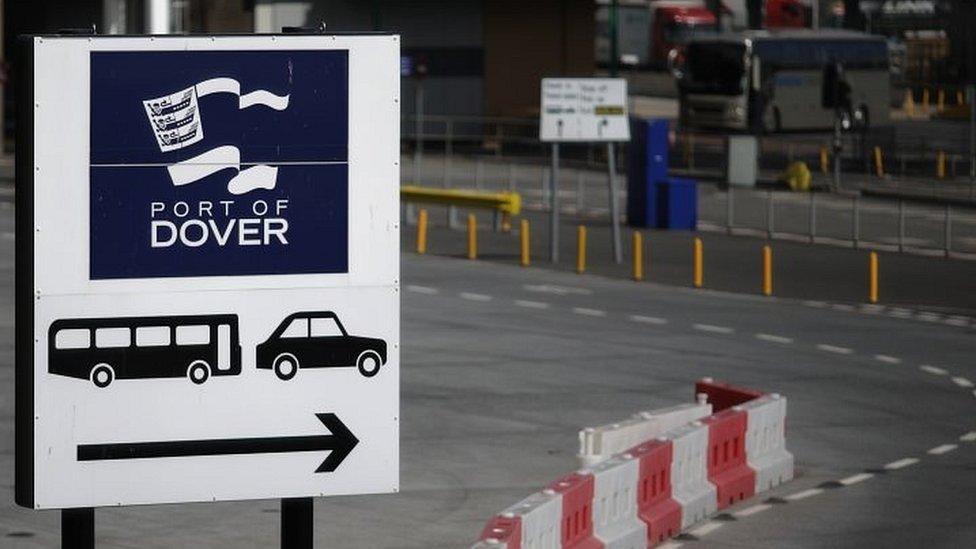Customs backstop plan faces rough ride
- Published

Look away now if you have had enough of the many, many, words I've written about the Conservatives' woes on the customs union. But there is what would be called, in American cable news, a "developing situation".
The government's latest proposals on the customs backstop - what happens if there is no super-duper free trade agreement or miraculous customs arrangements ready by the time we leave the European departure lounge, have finally been circulated around government departments this morning.
Progress, right? Not so fast.
Sources who have seen the four page document tell me that it is "anodyne", that it is like Hotel California, where the UK checks out and never leaves - essentially, it's not up to snuff.
The specific objections are that while the document says that there should be a time limit on closer ties to the EU, it doesn't say either what that time limit should be, or whose decisions it will be to say when time is up.
The document merely says that the backstop will "only be in place until the future customs arrangement can be introduced".
For Brexiteers, the lack of a firm deadline is hard to swallow. Secondly, there is what has, guess what, been described as a fudge on the European court.
It says that the UK "would have to respect the remit of the European Court of Justice", for as long as it is in agencies, and that the law has to be "interpreted consistently".
That might not sound that contentious compared with some of the things the prime minister has said before. But, a lack of specifics on the limit of European legal precedence is likely to wind sceptics up.
And behind it all of course, there is high emotion.
There's suspicion that No 10 is trying to bounce Brexiteers into swallowing their compromises, or dare them to walk out.
The Brexit Secretary David Davis has been frustrated at the lack of pace on decision making for many months.
Downing Street's slow journey to controversial compromises won't please everyone.
One senior source even suggested that there is still so much to be discussed about this proposal (not more, I hear you cry) that it might not make it to the negotiating table in Brussels.
If the proposals don't even make it across the Channel what progress can there really be?